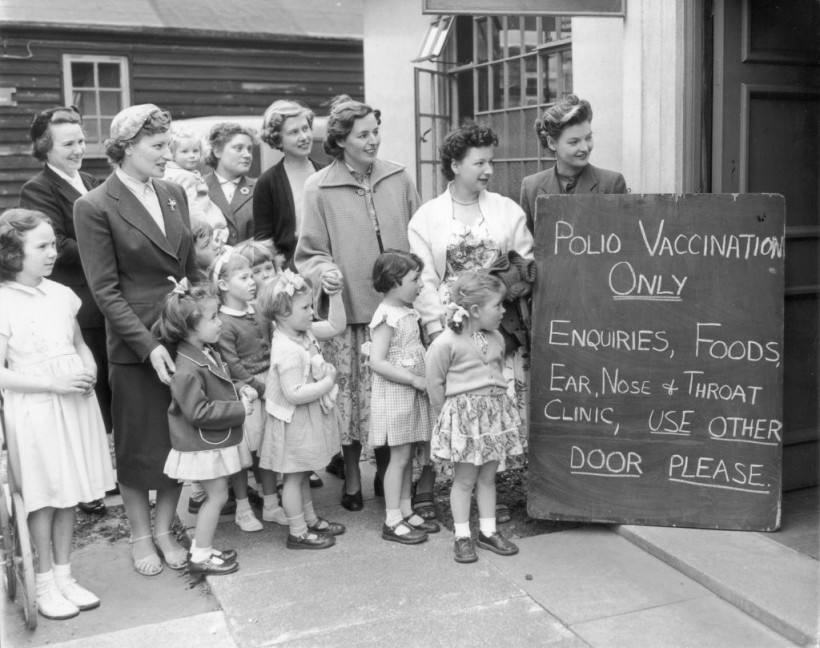UNICEF and the World Health Organisation (WHO) jointly released an immediate call for action to stop global measles, and polio epidemics as the coronavirus pandemic threatens to interrupt vaccine programs worldwide, putting millions of young children at risk.
Both UN organizations report that for non-Gavi qualifying countries and target age ranges, $400 million to $655 million for polio and $255 million for measles are needed.
Dr. Tedros Adhanom Ghebreyesus, Director-General of the WHO, said the coronavirus pandemic had a "devastating effect" on the global health care system and immunization programs. Yet, Dr. Ghebreyesus said almost everyone now has the resources and expertise to stop diseases such as polio and measles, unlike COVID-19.
"What we need are the resources and commitments to put these tools and knowledge into action. If we do that, children's lives will be saved," he said.

A group of mothers with their children wait outside the Middlesex County Council Clinic for the first polio vaccinations to begin, 8th May 1956.
COVID-19 Isn't Only The Battle Against All Diseases
UNICEF Executive Director Henrietta Fore said that although battling the coronavirus pandemic, the world should not allow it to "enable us to lose ground in the battle against other diseases." The present COVID-19 situation is crucial, but other deadly diseases still endanger millions of children's lives in some of the world's poorest places.
That is why Fore urgently called on national governments, sponsors, and allies for global action. To safely restart vaccine programs, UN organizations' initiatives require increased financial support and strengthen immunization schemes that are highly critical for shielding children and avoiding other epidemics other than SARS-CoV-2.
There has been a worldwide resurgence in measles in the last few years, with continuing outbreaks in all areas of the world. The Coronavirus pandemic has also aggravated the vaccine distribution discrepancies this year.
Measles remains an ongoing health epidemic because it soared to the largest level of new infections last year in more than two decades. The annual mortality data for 2019, which will show the continuing harmful toll across the planet, will be published next week.
Experts agree that the poliovirus spread may increase in Pakistan and Afghanistan and many places in Africa. Failure to eradicate this epidemic, according to UNICEF, could contribute to a global revival of polio that could, within ten years, trigger as many as 200,000 new cases annually.
However, as soon as the organizations have prepared for new instruments, the world should predict any positive news that will better resolve the growing challenges and save millions of lives.
A next-generation innovative oral polio vaccine and Measles Disease Strategic Response Strategy might also be implemented in the coming months.
TB Mortality After the Pandemic
Recently, experts have said that hundreds of thousands of more deaths from tuberculosis are expected to occur in 2020 due to the pandemic's effects on global health systems.
Doctors and healthcare staff have changed the emphasis from treating TB patients to coronavirus infection cases in countries such as Africa, India, and Indonesia. Consequently, millions of TB diagnoses have been missing, which will only trigger excess TB deaths of 200,000 to 400,000 in 2020, according to the WHO.
Thomas Kenyon, Project Hope's chief health officer, said it was only an indication of the very tough decisions that had to be made to control Coronavirus's pandemic.
ALSO READ: Brucellosis Outbreak Infects 6,620 After Using Expired Disinfectant
Check out more news and information on Vaccines on Science Times.














